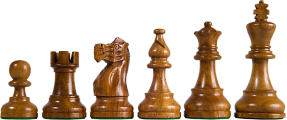
Knights Chess Club
Welcome To All, Young And Old


Conclusion About Chess
At the 40th World Chess Congress in 1969, Dr. Hans Klaus, Dean of the School of Philosophy at Humboldt University in Berlin, commented upon the chess studies completed in Germany: "Chess helps any human being to elaborate exact methods of thinking. It would be particularly useful to start playing chess from the early school days ... Everybody prefers to learn something while playing rather than to learn it formally…it produces in our children an improvement in their school achievements. Those children who received systematic instructions in chess improved their school efficiency in different subjects, in contrast with those who did not receive that kind of instruction.'' [22]
Because of the overwhelming research demonstrating the benefits of chess and because of the brain research theorizing the growth of dendrites, chess should be integrated into the school curriculum at the primary level.
Chess is a new way of solving the old problem of poor education. From the streets of Harlem to Venezuela's public schools the sport of kings has been implemented as an effective tool for teaching students to utilize their higher order thinking skills and to strive to overcome personal problems to reach their full potential. In light of these facts it is not unreasonable to imagine chess as a broader part of schools in America. Chess could very well be one of the missing components for America to regain its place at the top for educating its young people.
NOTES
- Naciso Rabell Mendez, ``Report by the World Chess Federation (FIDE) to the United Nations Organization (UNO),'' June 1988, quotes Dr. Klaus' comments.
Material excerpted or adapted from the Illowa Chess Club: TEACHER'S GUIDE: RESEARCH AND BENEFITS OF CHESS by Dr. Robert C. Ferguson






